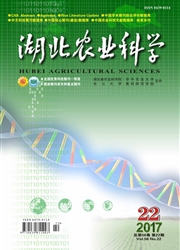

 中文摘要:
中文摘要:
为了探究不同pH下鹅绒委陵菜(Potentilla anserina L.)克隆构件的可塑性反应,为碱化土地的植被恢复提供指导,使用人工控制pH的方法,1/2 Hoagland培养液培养,共设置12个pH梯度,每个梯度10次重复,考察pH对鹅绒委陵菜克隆构件的影响,所得数据使用SPSS和Excel软件进行处理,得到数学模型和拟合曲线。结果表明,鹅绒委陵菜克隆构件的相关性状随pH增大呈二次曲线变化,其生长阈值为pH 3-12,对pH有较强的可塑性。鹅绒委陵菜可作为酸碱化土地上恢复植被的物种。
 英文摘要:
英文摘要:
The plasticity of Potentilla anserine L. clonal architecture in response to different pH was explored to provide guid- ance for the alkaline land vegetation restoration. By the method of manual control of pH, the P. anserine L. clonal architec- ture was cultured in 1/2 hoagland nutrient solution of 12 different pH gradient with 10 repeats each gradient, and the effects of pH on clonal architectur were studied. By SPSS and Excel software, the mathematical model and fitted curve were ob- tained. The results showed that the related traits of P. anserina L. clone architecture exhibited quadratic curve relationship with pH and the growth threshold was pH 3-12, showing strong plasticity to pH. So P. anser/na L. can be used to restore vegetation species at acid and alkali land.
 同期刊论文项目
同期刊论文项目
 同项目期刊论文
同项目期刊论文
 期刊信息
期刊信息
